9 start with R start with R
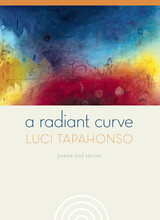
These engaging words draw us into a workaday world that, magically but never surprisingly, has room for the Diyin Dine’é (the Holy People), Old Salt Woman, and Dawn Boy. When she describes her grandson’s First Laugh Ceremony—explaining that it was originally performed for White Shell Girl, who grew up to be Changing Woman—her account enriches us and we long to hear more. Tapahonso weaves the Navajo language into her work like she weaves “the first four rows of black yarn” into a rug she is making “for my little grandson, who inherited my father’s name: Hastiin Tsétah Naaki Bísóí.”
As readers, we find that we too are surrounded by silent comfort, held lovingly in the confident hands of an accomplished writer who has a great deal to tell us about life.
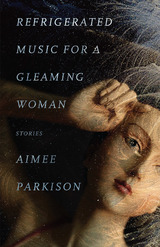
A darkly comical horror lurks beneath the surface of everyday events in Refrigerated Music for a Gleaming Woman, a seductively poetic story collection of unusual brilliance and rare humor.
In Aimee Parkison’s Refrigerated Music for a Gleaming Woman, lovers find unexpected romance in cramped spaces, fast food addicts struggle through cheeseburger addiction, and the splendor of nature competes with the violence of television. All the while, a complicated and precarious present dawns onto a new world where wealthy women wear children’s eyes as jewelry and those in need of money hawk their faces only to forever mourn what parts of themselves they have sold to survive.
Open the refrigerator door. Inside are antique jars. Open them to hear the music: Beethoven playing piano; slaves singing for freedom in plantation fields; mothers humming lullabies through the night to smallpox babies, knowing this song is the last sound their children will ever hear.
As Stephen Graham Jones notes in his foreword to this prize-winning collection, “The best books . . . fold you into a darkness sparkling with life. They lock you in the refrigerator but they also pipe in some music that never repeats, and when the door starts to open, you cling tight to it, so you can have just a few minutes more. This book, it’ll be over far too fast for you, yes. But even were it five times as thick as it is now, it would still be too short. Remember, though, the best books, they’re loops. They never stop. This one still hasn’t, for me.”
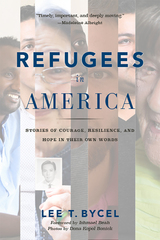
Each chapter of Refugees in America focuses on an individual from a different country, from a 93-year-old Polish grandmother who came to the United States after surviving the horrors of Auschwitz to a young undocumented immigrant from El Salvador who became an American college graduate, despite being born impoverished and blind. Some have found it easy to reinvent themselves in the United States, while others have struggled to adjust to America, with its new culture, language, prejudices, and norms.
Each of them speaks candidly about their experiences to author Lee T. Bycel, who provides illuminating background information on the refugee crises in their native countries. Their stories help reveal the real people at the center of political debates about US immigration.
Giving a voice to refugees from such far-flung locations as South Sudan, Guatemala, Syria, and Vietnam, this book weaves together a rich tapestry of human resilience, suffering, and determination.
Profits from the sale of this book will be donated to two organizations that are doing excellent refugee resettlement work and offer many opportunities to support refugees: HIAS (founded as the Hebrew Immigrant Aid Society) hias.org International Rescue Committee (IRC) rescue.org
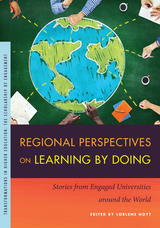
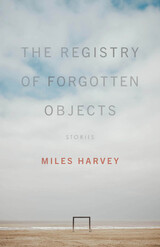
In this haunting debut collection, best-selling author Miles Harvey probes the mysterious relationship between human longings and the secret lives of inanimate objects. In one story, an artist discovers an uncanny ability to transform modern sculptures into priceless ancient treasures. In another, a teenager experiences visions of other people’s pasts while vandalizing their abandoned houses. In a third, a grieving couple returns again and again to the beach where their son disappeared, pulling plastic bottles, fishing nets, buoys, and other bits of beach trash from the surf “as if those random bits of wreckage were the untranslated hieroglyphs of some secret language that might help them understand their loss.”
Harvey—whose work Dave Eggers called “ludicrously unputdownable”—delivers a constellation of stories that explore the gravitational pull of material things: how they drift into and out of our hands, how they assume new meanings, and the ways they serve as conduits between the present and past, the everyday and incomprehensible. Most of all, he explores how these objects have the power to reveal strange and moving facets of the human condition.
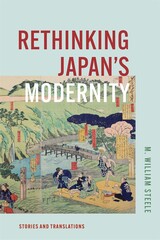

The Korean War was a major event in American history. It marked an abrupt end to the euphoria Americans felt in the wake of victory in World War II and turned out to be the harbinger of disaster in Vietnam a decade later.
Though three years of brutal fighting resulted in millions of casualties, the final truce line of 1953 corresponded almost exactly to the positions the opponents held when the fighting began. Back home, the returning veterans met with little interest in or appreciation of what they had endured. Consequently, literary responses to the Korean War did not find an eager readership. Few people, it seemed, wanted to read about what they perceived as a backwater war that possessed neither grand scale nor apparent nobility, a war that ended not with a bang, but a whimper.
Yet an important literature has come out of the Korean War. As we mark the fiftieth anniversary of the war, these writings are well worth our attention. Many of the twelve stories and fifty poems assembled in Retrieving Bones have long been out of print and are almost impossible to find in any other source. The editors have enhanced this collection by providing maps, a chronology of the Korean War, and annotated lists of novels, works of nonfiction, and films. In a detailed introduction, Ehrhart and Jason discuss the milestones of the Korean War and place each fiction writer and poet represented into historical and literary contexts.
Among the writers and poets are
· James Lee Burke
· Eugene Burdick
· William Chamberlain
· Rolando Hinojosa
· Reg Saner
· Vern Sneider
· Stanford Whitmore
· Keith Wilson
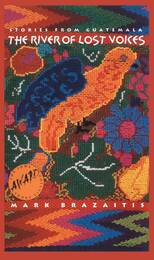
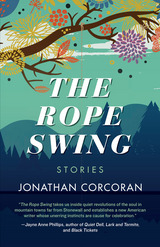
A once-booming West Virginia rail town no longer has a working train. The residents left behind in this tiny hamlet look to the mountains that surround them on all sides: The outside world encroaches, and the buildings of the gilded past seem to crumble more every day.
These are the stories of outsiders—the down and out. What happens to the young boy whose burgeoning sexuality pushes him to the edge of the forest to explore what might be love with another boy? What happens when one lost soul finally makes it to New York City, yet the reminders of his past life are omnipresent? What happens when an old woman struggles to find a purpose and reinvent herself after decades of living in the shadow of her platonic life partner? What happens to those who dare to live their lives outside of the strict confines of the town’s traditional and regimented ways?
The characters in The Rope Swing—gay and straight alike—yearn for that which seems so close but impossibly far, the world over the jagged peaks of the mountains.
READERS
Browse our collection.
PUBLISHERS
See BiblioVault's publisher services.
STUDENT SERVICES
Files for college accessibility offices.
UChicago Accessibility Resources
home | accessibility | search | about | contact us
BiblioVault ® 2001 - 2024
The University of Chicago Press









